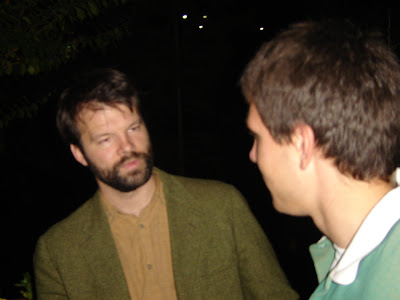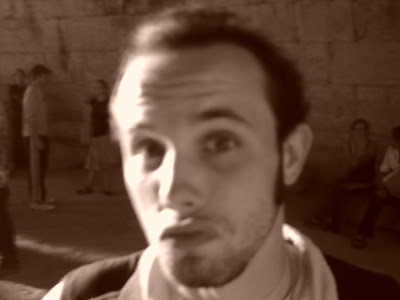Archive for » 2009 «
New Project
Go to the website to check out a news story…
https://www.fox6now.com/witi-090223-hartford-chase-update,0,5177352.story
Apparently, I was in Hartford last February.
I think I’ve started to bilocate.
By the way, the other day, I drove downtown and bought a cassock. Then I ate at Burger King. It was awesome. Unfortunately, they don’t sell Texas Double Whoppers in Philly. So it’s not always sunny in Philadelphia.
So don’t you see, / you belong with me.” So ends the refrain of Taylor Swift’s “You Belong with Me,” a thoughtful consideration of the ironies of young love. The delightfully unreliable speaker Swift employs laments her unrequited feelings for a boy who has chosen another over her, citing that, while the other “wears short skirts” and “high heels,” and she “t-shirts” and “sneakers”, she should be preferred based on the fact that she is “the one who understands [him].” The speaker further elaborates that her adversary is “cheer captain” and she is “on the bleachers.” A laugh track is employed to emphasize the irony that the speaker fails, even based on this extreme evidence, to understand why the boy has made the obvious choice. Her simplicity is further highlighted by the use of a trite chord structure, a boorish rhythm, and an apostrophic form, even though it is obvious that the subject of address is absent. The use of such peevish forms to underscore so silly a comparison could be called heavy-handed, were it not for the graceful levity of Swift’s verse. The speaker’s preoccupation with knowledge’s connection to love causes her even to misapprehend reality. She commits the psychological fallacy of transference in thinking she has not “seen [the boy’s smile] in a while.” The listener is of course aware of who is smiling and who isn’t. We smirk at the absurd notion that she “[knows him] better than that,” and hope only for the sake of gratitude that Swift’s smirk is even larger. Her depth of insight remind us all of the salvific of pop music.
[Prior to the publication of this review, the laugh track was removed. Some argue that this move was made in order to emphasize the poem’s rhythmic and tonal structures, but it is the opinion of this critic that such a truncation shows her true commitment to meta-art, as well as cements her as one of the most daring, unflinching satirists of our time. One wishes he had three hands to clap with.]








